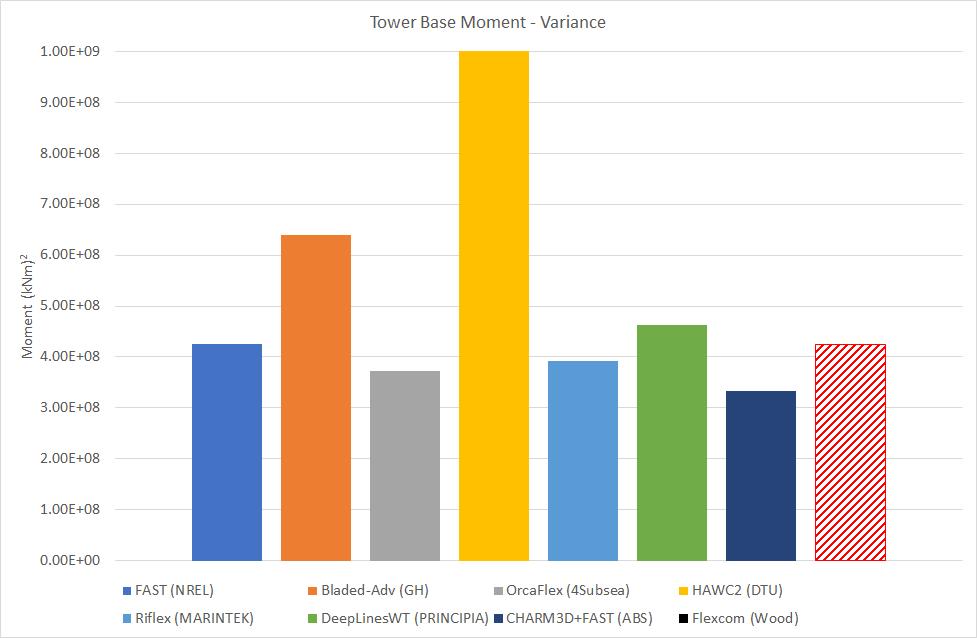This load case is very similar to OC4 P2 LC2.2, but the wave loading is much more severe in this case (Hs=15m rather than 6m). It is not discussed in Robertson et al. (2014) but generally speaking, similar trends to that observed in OC4 P2 LC2.2 are also evident here. Results are presented below, via mean and variance, for platform surge, platform pitch and bending moment at the base of the tower. Note that results from Bladed (GH) were not found in the IEA Wind Task 30 results library, so we have used results from Bladed Advanced Hydro Beta (GH) instead in this comparison.
The mean surge response shows considerable variation across the different software products, depending on how drift forces are being modelled (if at all). Refer to OC4 P2 LC2.1 for further information.
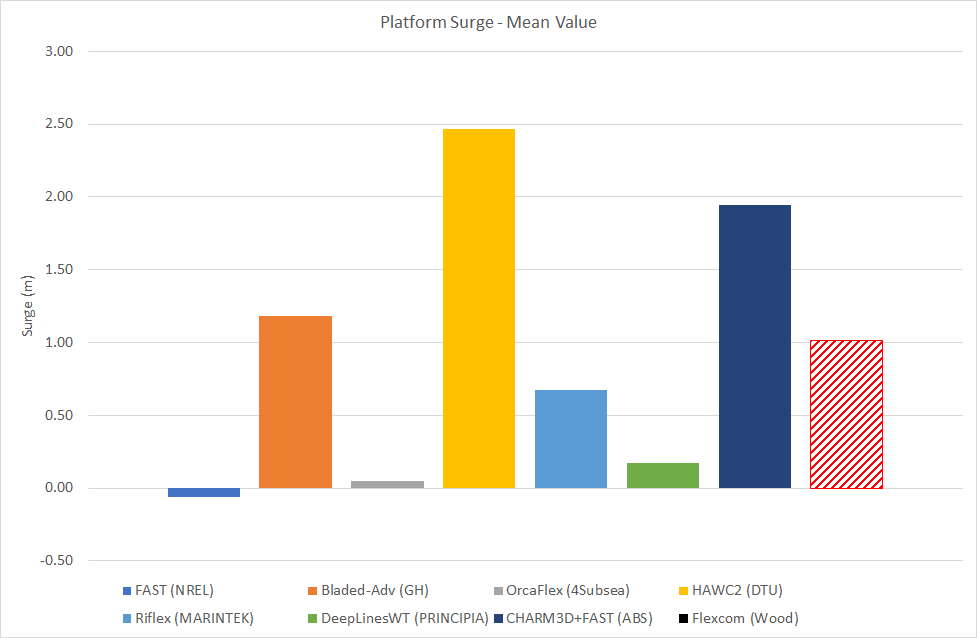
The mean pitch response shows some variation across the different software products, although the mean pitch is relatively minor.
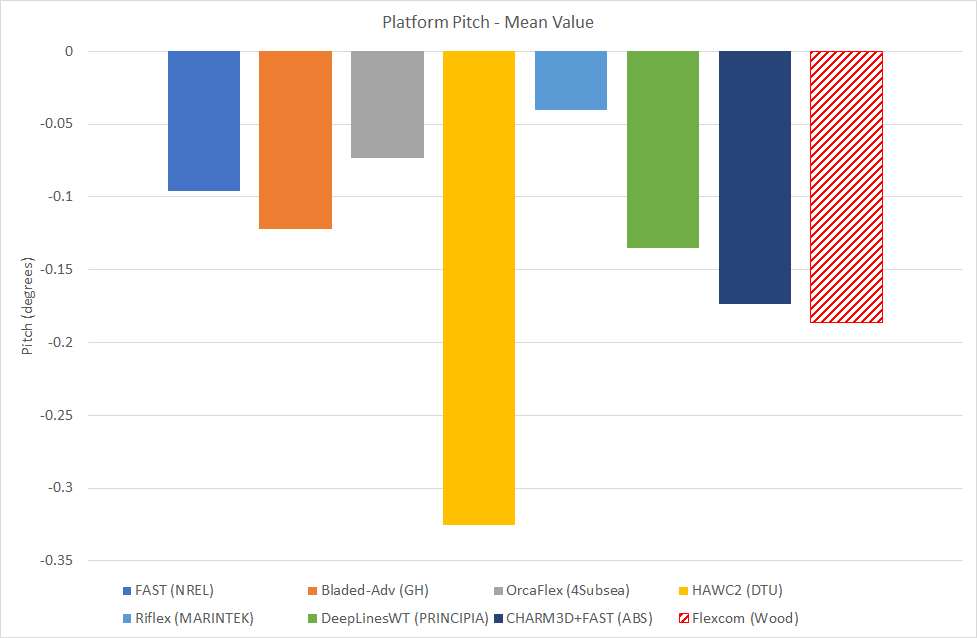
The mean tower base moment shows reasonable agreement across the different software products.
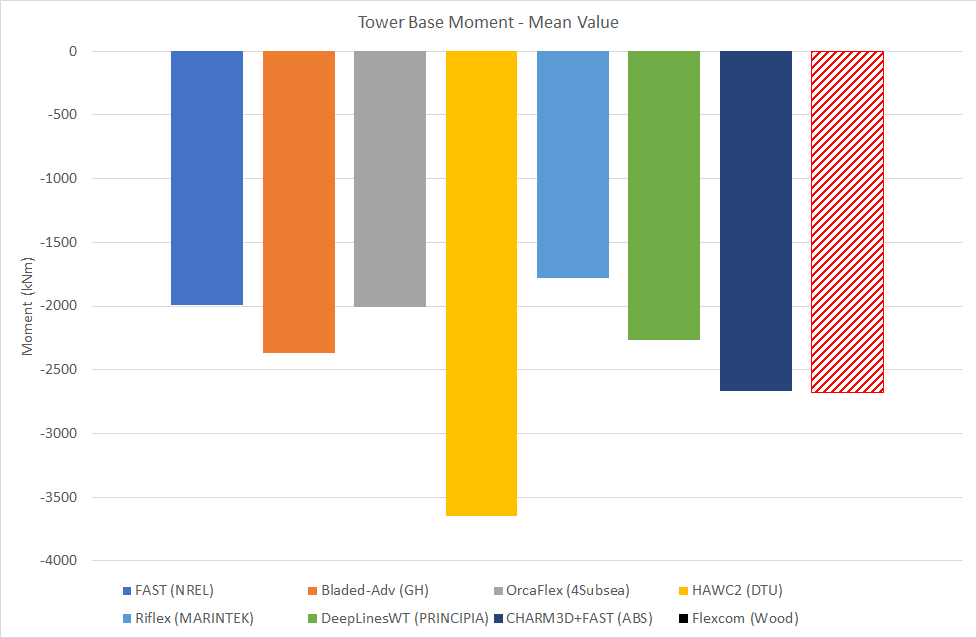
The variance in surge shows reasonable agreement across the different software products.
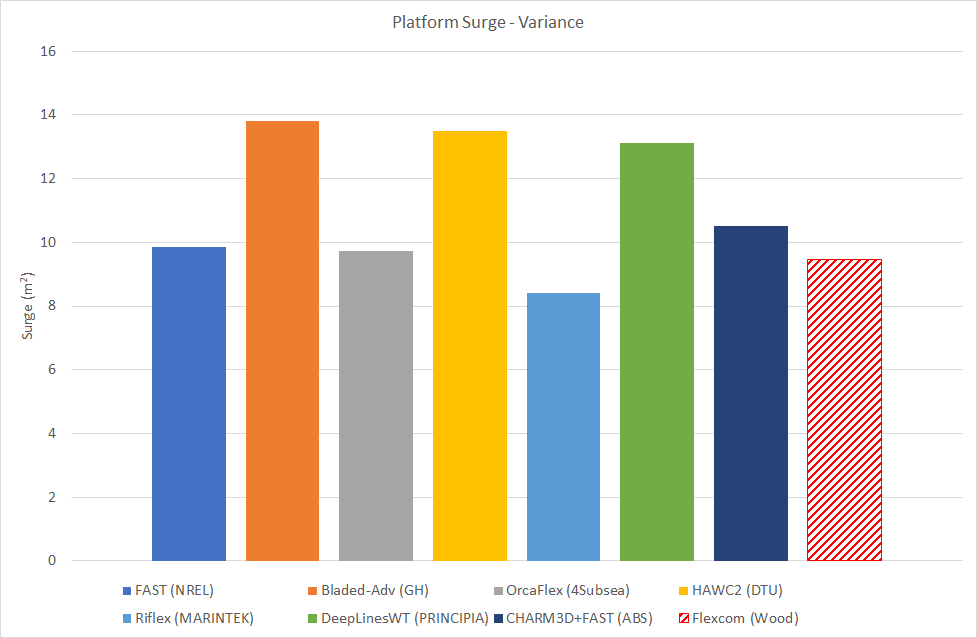
The variance in pitch shows reasonable agreement across the different software products, with the exception of HAWC2 (DTU) which appears to be inconsistent with the others.
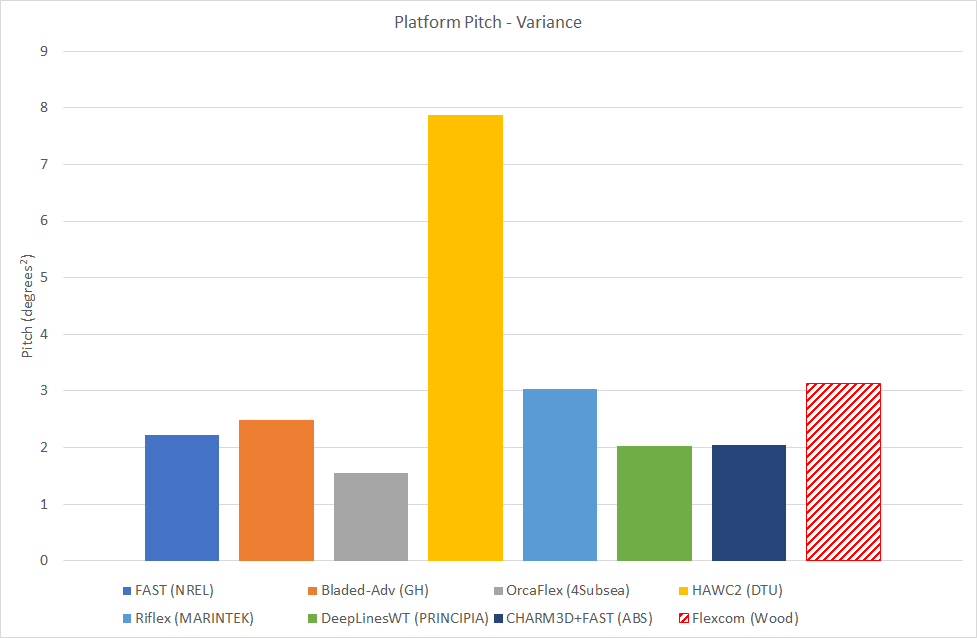
The variance in tower base moment shows reasonable agreement across the different software products, with the exception of HAWC2 (DTU) which appears to be inconsistent with the others. Although the full extent is not shown below, this is an order of magnitude larger than the others, and based on OC4 P2 LC2.2, it probably results from an incorrectly prescribed axis definition for the output.
